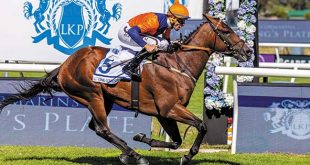SA DOMESTIC HORSERACING POPULATION MERIT RATINGS ADJUSTMENT – 1 AUGUST 2019
Over the past few seasons it has been observed that a general decline in the Merit Ratings of South African domiciled horses was occurring, and that the trend has continued despite the “blanket” six pounds raise to all Merit Ratings which came into effect in March 2018. This is particularly true at the lower end of the spectrum, where some 75% of the horse population are rated 72 and below. The above observations were discussed extensively during the 2019 Handicappers Roadshow.
Effects of the Guidelines and Slippage Factor:
In large part, the problem of “slippage” in the overall Ratings has been exacerbated byHandicapping guidelines which were designed to severely limit increases in horses’ Ratings thereby ‘protecting’ improving horses and which in turn, as a compensatory measure, resulted in a more vigorous approach towards dropping the Ratings of struggling horses in a bid to equalise the Handicapping as much as possible. This practice resulted in 75% of the Horse Population being rated below 72 thus causing an extreme imbalance (or congestion) in the National Merit Ratings Pyramid and consequentially to the National Race Programme.
Current Handicapping Philosophy:
Since January 2019, the NHA have adopted a more accountable and pure Handicapping philosophy by reverting to, where possible, assessing horses on their performance and not on other (often irrelevant) criteria as promulgated by the Guidelines, but the damage had already been done. This current philosophy of handicapping horses more accurately in terms of their actual achievements should ensure that there will not be such a rapid decline in the overall Ratings again in future and, where possible (except where local operators conditions limit the Handicappers), a horse’s published or official Merit Rating would reflect the Handicappers’ assessments of a horse’s ability.
National Horseracing Population Merit Rating Adjustment:
Accordingly, it was proposed by the NHA Handicapping team, and largely agreed upon at the Roadshows, that another increase in Domestic Merit Ratings be considered in order to balance the Population’s Merit Ratings and the Race Programme as well as alleviate any further degeneration of the Population’s Merit Ratings. This proposal was ratified by the National Board and will come into effect on 1 August 2019. It has been agreed that the Domestic Merit Ratings of all horses domiciled in Gauteng, KwaZulu-Natal and the Western Cape will be increased by 10 pounds.
Eastern Cape:
Horses domiciled in the Eastern Cape will have their Merit Ratings increased by 5 pounds. This decision was taken in light of the Eastern Cape racing centre being a victim of the ‘creep factor’. An Eastern Cape horse will be defined, for the purposes of the adjustment, as any horse domiciled and trained in the Eastern Cape that has had two of its last three starts in Eastern Cape.
Northern Cape and Zimbabwe:
The same definition of what constitutes domiciles will be applied to horses based in the Northern Cape and Zimbabwe, but no increase will be implemented in the Merit Ratings of horses in those regions.
Merit Ratings and the Race Programme:
This increase will have the highly desirable effect of uncluttering the lowest divisions as well as helping to boost the higher divisions, where races often attract small fields or fall away altogether due to insufficient entries. Horses at the bottom of the Ratings’ spectrum will also find it much easier to get into races than is presently the case, where they are regularly eliminated or have no option but to contest races which are too strong for them. The National Race Programme, as confirmed by the Racing Operators, will be adjusted to accommodate the impending Merit Rating increase and should ensure a balance between the Merit Ratings and the National Race Programme.
International Merit Ratings:
It should be noted that the increase will only affect Domestic Merit Ratings and not the International Ratings of South African trained horses. The International Ratings of South African trained horses are done by the World’s Best Racehorse Ratings Committee.
Handicapping Methodology and Updated Guidelines:
A Handicapping Methodology Guide as well as the updated Handicapping Guidelines will be published by the NHA on implementation of the abovementioned National Merit Rating increase.
Ends.







